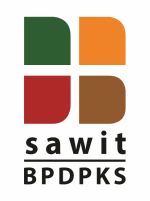
JAKARTA, Dec 17, 2023 - (ACN Newswire) - Rebranding is a dynamic process that can occur through various initiatives including alterations to brand identity or the introduction of a new name, symbol, or design associated with the refreshed offering. Revolutionary rebranding, often sparked by external demands unrelated to brand values, has been successful in cases such as McDonald's, which transformed from a fast-food giant into a health-conscious restaurant in response to negative media coverage on obesity issues.

In the plantation business, Starbucks stands out as a success story, shifting from negative perceptions of unfair trading in the coffee market to a pro-equal social business model. Originally known for premium coffee, Starbucks faced criticism for alleged unfair practices with coffee planters, prompting a transformation toward a more humane image. This shift involved the introduction of traceability, allowing consumers to explore the origin and journey of their coffee.

Above, a company-owned plantation in East Kalimantan, Indonesia. [Image: ANTARA FOTO]
Similarly, the Indonesian palm oil industry could adopt a strategy akin to Starbucks to rebuild market trust by adopting robust agricultural practices.
Firstly, establishing a robust palm oil data center is crucial. This center would integrate maps detailing oil palm areas, spatial planning maps, profiles of smallholders, land ownership status, tree quantity, and quality, and the entire crop supply chain. With comprehensive data, Indonesia's palm oil sector could tailor marketing prospects and strategies based on the characteristics revealed.
Secondly, creating market linkages tailored to the diverse needs of different farmers, with collaboration between the government and major palm oil companies essential. Initiatives should range from investing in value chains to enhancing the connection of farmers with relevant trading partners and buyers in formal markets, and contract farming to provide financial and technological support while safeguarding against risks like low supply quality. Certification schemes can aid smallholders in production and marketing, meeting the demands of ethically minded consumers, public-private collaboration in value chain investment would contribute to inclusive business practices among stakeholders and assist informal smallholders in navigating the complex formal corporate business landscape.
Thirdly, supporting well-organized farmer organizations is vital. Enhancing their financial and business skills is essential for achieving larger economies of scale through demand-driven collective marketing. The objective is to encourage farmers to collectively operate under independent, business-minded organizations, fostering durable trading relationships. This approach aligns with the principles that contributed to Starbucks' success in transforming its business model and could be instrumental in revitalizing the reputation and practices of the Indonesian palm oil industry.

750 downstream products for the world market. Indonesia's palm oil industry generates
4.5% of the country's GDP and employs 3 million people. [Image: ANTARA FOTO]
Collaborative efforts between the government and palm oil companies should emphasize market linkage approaches tailored to the needs of different farmer types. This includes investments in value chains, contract farming, certification schemes, and public-private partnerships to foster inclusive business practices.
Applying Starbucks' traceability journey to the Indonesian palm oil industry involves a strategic shift towards transparency, collaboration, and ethical practices. By embracing data-driven approaches, fostering partnerships, and supporting collective farming initiatives, the palm oil industry can navigate challenges and rebuild the trust of global markets.
By Fajril Amirul, Senior Officer
Indonesian Palm Oil Plantation Fund Management (BPDPKS)
https://www.bpdp.or.id/en/
Copyright (c) Antara 2023. Copyright (c) Antara 2023.
Copyright 2023 ACN Newswire. All rights reserved. www.acnnewswire.com































